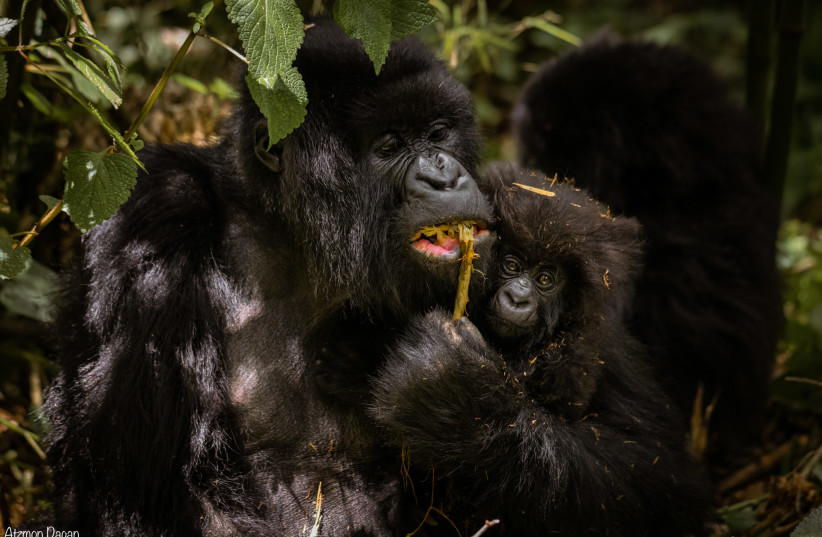Tony the gorilla, like other African primates, hates the cold and it is a constant challenge for his keepers at Kyiv Zoo to keep him warm and comfortable in the face of hours-long power cuts every day caused by the war.
Russia has been bombarding Ukraine's power grid and heating infrastructure in recent months and although it has so far proven a relatively mild winter, temperatures of around zero Celsius in the day and minus 10 Celsius at night are way too cold for Tony and other zoo animals from tropical countries.
"When the power is cut off and the heating stops, we have to think of a solution for our primates so they don't freeze. They need temperatures of at least 20 Celsius (68 Fahrenheit)," said Valentyna Dykarova, a primate specialist at Kyiv Zoo.
Keeping Tony warm
"That's why we've set up a wood fire oven here in the primate section... We fire the oven every morning so that he always has 20 degrees," she said, as the massive 48-year-old Tony - the zoo's only gorilla - watched impassively.
Dykarova said primates become less active and stop eating when there is no light. As a temporary solution, they have installed battery-powered lights.

Help is also now at hand from Germany, where a team at Berlin Zoo has managed to raise 400,000 euros in contributions from well-wishers to pay for generators and other items.
"We're happy that now we can send generators and fodder bought with these funds to Kyiv," said Christiane Reiss, a spokeswoman for Berlin Zoo.
The generators will provide additional heating as well as electricity to the zoo, whose own generators are insufficient for its needs.
Reiss said she had been "deeply touched" when Kyiv Zoo colleagues would tell her during their phone discussions about delivering the generators "wait, we might lose our connection now because we're under fire (from missiles)'.
"We (in Germany) cannot imagine what it must be like to be in such a situation," she said.
The director of Kyiv Zoo, Kyrylo Trantin, said the German aid was very timely.
"We know that February will be a tough month for us, and we need to do all we can to ensure that our animals don't realize there is a war going on beyond their enclosures," he said.
"We're deprived of electricity for four to 12 hours a day. These generators mean that our animals can live much better."
